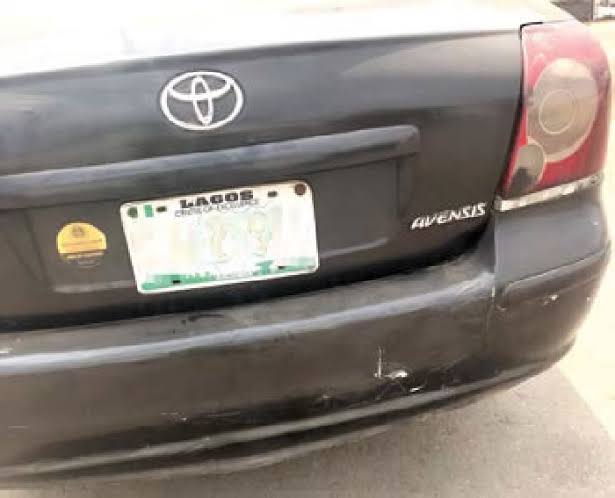Motorists have condemned the N25,000 sanctions on faded vehicle number plates and the high cost of renewing vehicle particulars by the government.
Some of those who spoke with the correspondent of News Agency of Nigeria (NAN) on Sunday in Abuja, described the action as a ploy to increase hardship on Nigerians.
They said a subtle increase in the cost of living without value-added readily inflicts more hardship on motorists and other end-users
NAN reports that the Spokesman, Federal Road Safety Corps (FRSC) Mr Bisi Kazeem, had recently claimed that the use of faded number plates had implication for national security.
NAN also reports that Kazeem said the mandate of the FRSC included making highways safe, designing and producing vehicle number plates and keeping custody of every information about vehicles in Nigeria.
He said that number plates faded because of using concentrated detergents in washing vehicles. In this case and other cases of theft, loss, and mutilation from crashes, replacement is at the cost of the vehicle owners.
Mr Peter Oguche, a banker with Polaris bank, said that the issue of faded number plates was a big business for the FRSC personnel who now took it upon themselves to harass all non-government vehicles.
This, he said included mothers taking their children on school run, and detained travellers in the middle of nowhere on the highways.
”Everyone knows that criminals use vehicles with no number plates or covered plates, yet FRSC has quite unjustifiably set themselves up as prosecutor and judge in the matter.
“Considering the current state of the economy, it is outrageous to impose upon citizens a penalty of up to N25,000 for “faded” number plates which only they can determine.
“It has often been said that once a Nigerian is given a uniform, it affects their psyche and they generally carry on as if they are masters of the public rather than their servants.
“This is perhaps a fall-out from the years of military misadventure into governance where the imposition of authority and use of unquestionable force was the norm.
“These days the superficial thought processes and lack of conscience in those who govern Nigeria allow agencies to get away with extortion, ” he lamented
Mr Olusegun Ojo, a business man, said that there was absolutely no justification for citizens having to bear the cost of the FRSC’s incompetence in the production of befitting quality number plates.
Ojo said that if any replacement was required, the onus should be on the agency that issued the low quality number plates in the first place.
He lamented that FRSC accepted no blame whatsoever but blamed the weather for damaging number plates as well as car wash attendants who they claim use abrasive materials!
“Perhaps the worst aspect of the matter is that to apply for a replacement, number plate car owners have to waste both time and money visiting an FRSC centre.
” This include obtaining an application form to which other documents need to be attached, pay another exorbitant fee, and wait for days to collect another inferior plate.
“If it is truly about national security then there is no logic behind fining individuals; defaulting drivers should be made to make payments for automatic replacements rather than first being fined.
“It indicates an overriding insensitivity to the plight of Nigerians, ” he said.
Mr Hassan Saliu, a car dealer insisted that government should ask themselves what happened after a citizen bought a car and paid for driving licence, number plate, tinted glass permit, fire extinguisher, C-caution and road-worthiness.
Saliu said “are the roads themselves worthy? Fuel and diesel prices continuously increase, now gas is also high in price.”
He lamented that the FRSC simply wanted to make money from road users with nothing new to offer.
An Ibadan-based lawyer, Abraham Onu, in a telephone interview with the NAN correspondent, faulted the FRSC for abdicating its mandate and responsibility to Nigerians in pursuit of the revenue generating agencies’ role.
Onu maintained that FRSC was not established as a revenue generating agency, but to ensure safety on federal highways.
He said that the FRSC was not only enforcing indiscriminately its rules even on state roads in violation of the federal principle, but also elevating revenue generation above its core mandate.
According to him, Nigerians are already suffering from a high level of distress.
“To add to that distress by impounding their vehicles or confiscating their licenses and imposing a fine using faded number plates is against the principles of natural justice,” he said.









